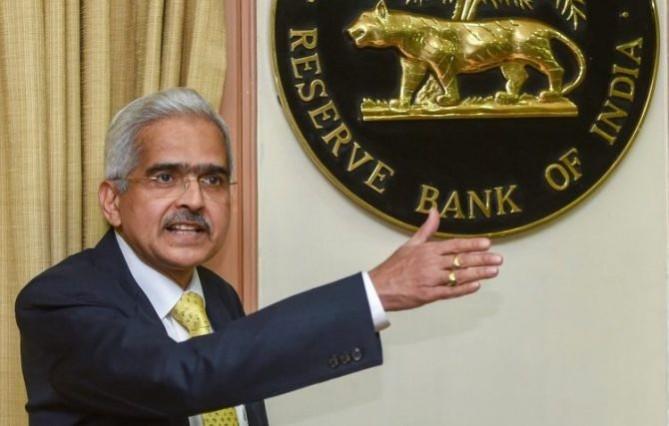Coronavirus cases have been identified across different parts of the country, and the government is taking all measures to curb and control the rapid spread of the pandemic across India.
Coronavirus in Karnataka affects SMEs and trade
Recently, three positive coronavirus cases have been confirmed in Bengaluru, according to the Indian Council of Medical Research (ICMR). All primary classes in BBMP, Bengaluru Urban and rural districts are suspended and scheduled examination for primary school children stands cancelled until further orders are issued by the Government of Karnataka.
Amidst spread of the pathogen and efforts made by the State Governments and the Ministry of Health and Welfare to contain it, the disease has affected 15 to 20 industry sectors to result in a decline of trade volumes and business by 50% in the State of Karnataka.
Karnataka has approximately 6 lakh small-scale industries reliant on imports from China directly or indirectly for the supply of raw materials, machine, motor and auto parts, computer accessories, building material, fittings and fixtures, electronic and hardware items, solar panels, fabrics and furniture and many more.
The Covid-19 attack has disrupted the entire supply chain to affect 15 to 20 business sectors in the region mostly consisting of SMEs, with the breakout of the virus imposing several restrictions on dispatch and movement of goods.
Additionally, travel advisories have been issued and mobility restrictions have been imposed to create an environment of fear for businesses to operate. With the coronavirus issue building up, businesses have cancelled their travel plans, companies have rescheduled events to affect sales and marketing operations and trade in the last quarter of the fiscal.

If the situation does not improve in the next few weeks, Sandeep Singh, Chairman of CII-Karnataka cautions "manufacturing, automobile, machine tools, hotels, entertainment, and tour and travels businesses to be prepared for the much higher impact."
Holding hopes high amidst the crisis, Devesh Agarwal, President, Bangalore Chamber of Industry and Commerce positively believes, "Some factories in China will reopen after the Lunar New Year. While alternative supply chains are being developed, global consumption has seen an overall decline. Clearly, there is a slowness witnessed in global economic activities."
Impact of China's slowdown on global trade and business in India
Since the coronavirus outbreak, the Indian economy has faced the worst hit with a decline in trade volumes, weaker exports, and sluggish imports to dent profit margins of enterprises and companies across the globe. The travel and tourism industry has seen a sharp slowdown with a flurry of domestic and international cancellations that will continue for the next few weeks.
In a chain reaction, the hotel and hospitality sector is bearing the brunt of reduced travel and cancellations due to coronavirus. The global spread of Covid-19 has raised the prospects for an emergency monetary policy action call in India.
RBI Governor Shaktikanta Das said, in order to shield the economy from the coronavirus crisis, "there's room to cut interest rates if needed."

As per estimates published by the United Nations Conference on Trade and Development (UNCTAD) in its report, the manufacturing slowdown in China has impacted world trade to affect developing economies such as India at $348 million with US$50-billion decrease in exports across global value chains. The country ranks among the top 15 countries affected by Coronavirus and China's slowdown. The most affected sectors in China are precision instruments, machinery, automotive and communication equipment.
The most affected economies globally because of the Covid-19 outbreak are - European Union (US$ 15.6 billion), the United States (US$ 5.8 billion), Japan (US$ 5.2 billion), South Korea (US$ 3.8 billion), Taiwan Province of China (US$ 2.6 billion) and Vietnam ( US$ 2.3 billion). The trade impact on Indonesia is US$ 312 million. Indian chemicals sector trade is most impacted at $129 million, followed by textiles and apparel segment at $64 million, the automotive sector at $34 million, metals and metal products at $27 million, wood products and furniture at $15 million, leather products at $13 million and electrical machinery at $12 million respectively.
The report further states, "Any significant disruption in China's supply in these sectors is deemed to substantially affect producers in the rest of the world. Indeed, many companies around the world are fearful that the measures put in place to contain COVID-19 (i.e. restrictions to economic activities and movement of people), could hinder the supply of critical parts from Chinese producers, therefore affecting their own output."
How will disruption in supply from China affect businesses?
While the full effect of coronavirus on global supply value chains will become clearer only in the next few months, the question remains how will disruption in Chinese supply of intermediate inputs affect the rest of the world?
The report states, "Even if the outbreak of COVID-19 is contained mostly within China the fact that Chinese suppliers are critical for many companies around the world implies that any disruption in China will be also be felt outside China's borders in Europe, America, and East Asian regions. The estimated global effects are subject to change depending on the containment of the virus and or changes in the sources of supply."
"It is expected that the spillover effects of a disruption in Chinese supply will be diverse across economic sectors and dependent on the geographic localization of the COVID19 outbreak."








